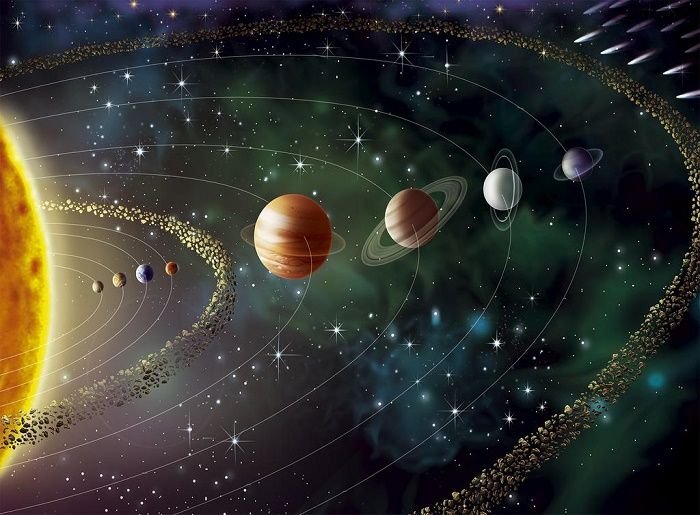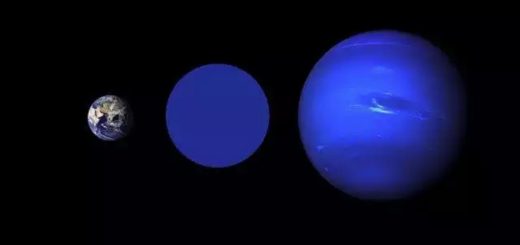Planet X: Four Candidates For Planet X Located And Examined

The quest for the elusive Planet X continues. Four possible candidates for Planet X have been located and will be examined.
Many theories have been put forward, but Planet X, also referred to Planet 9 refuses to give up its secrets and has not yet been found. Some astronomers say it doesn’t it. Others have suggested Planet 9 was actually stolen by our Sun about 4.5 billion years ago.
In 2015, astronomers announced they had detected several never before seen objects located extremely far away from our Sun.
Caltech researchers Konstantin Batygin and Mike Brown said that they found evidence of a giant planet tracing a bizarre, highly elongated orbit in the outer solar system. The object has a mass about 10 times that of Earth and orbits about 20 times farther from the sun on average than does Neptune (which orbits the sun at an average distance of 2.8 billion miles).
Batygin and Brown nicknamed their predicted object “Planet Nine,” but the actual naming rights of an object go to the person who actually discovers it. The name used during previous hunts for the long suspected giant, undiscovered object beyond Neptune is “Planet X.”
“This would be a real ninth planet,” says Brown, the Richard and Barbara Rosenberg Professor of Planetary Astronomy. “There have only been two true planets discovered since ancient times, and this would be a third. It’s a pretty substantial chunk of our solar system that’s still out there to be found, which is pretty exciting.”
See also:
Earth’s Periodic Mass Extinctions Linked to Planet X – Researcher Says
‘Planet Nine’ May Exist: New Evidence for Another World in Our Solar System
Quest For Planet X Continues: Several Never Before Seen Objects Discovered Extremely Far Away From Our Sun
Was Mysterious Planet 9 Stolen By Our Sun 4.5 Billion Years Ago?
More About Astronomy
This large object could explain the unique orbits of at least five smaller objects discovered in the distant Kuiper Belt.
“The possibility of a new planet is certainly an exciting one for me as a planetary scientist and for all of us,” said Jim Green, director of NASA’s Planetary Science Division.
“This is not, however, the detection or discovery of a new planet. It’s too early to say with certainty there’s a so-called Planet X. What we’re seeing is an early prediction based on modeling from limited observations. It’s the start of a process that could lead to an exciting result.”
Zooniverse citizen science project, in coordination with the BBC’s Stargazing Live broadcast from the Australian National University’s Siding Spring Observatory, consists of a large group of volunteers and scientists who are determined to find the mysterious Planet X.
“In the outer-reaches of our Solar System, far beyond Neptune, are a number of large objects that are orbiting the Sun in a highly unusual and unexpected way.
The presence of a ninth planet in our Solar System would explain these unexpected observations.
However, this planet hasn’t yet been found,” it says on the Zooniverse website.
Using data from the SkyMapper telescope, about 60,000 people from around the world have classified over four million objects during just 3 days!
The project is very successful and the team has already identified several important celestial objects.
“We’ve detected minor planets Chiron and Comacina, which demonstrates the approach we’re taking could find Planet 9 if it’s there,” researcher Brad Tucker from the Australian National University’s Siding Spring Observatory said.
“We’ve managed to rule out a planet about the size of Neptune being in about 90 per cent of the southern sky out to a depth of about 350 times the distance the Earth is from the Sun.
There are now four possible candidates for Planet X that will be examined. Tucker points out that even if none of the four candidates turn out to be the hypothetical Planet 9, the effort was scientifically valuable, helping to verify the project’s search methods as exceptionally viable.
California Institute Of Technology
NASA
Universe Today



 Creators of mankind
Creators of mankind Description of “Tall white aliens”
Description of “Tall white aliens” Where they came from?
Where they came from? About hostile civilizations
About hostile civilizations The war for the Earth
The war for the Earth “Tall white aliens” about eternal life
“Tall white aliens” about eternal life Video: “Nordic aliens”
Video: “Nordic aliens” Aliens
Aliens Alien encounters
Alien encounters The aliens base
The aliens base UFO
UFO Technology UFO
Technology UFO Underground civilization
Underground civilization Ancient alien artifacts
Ancient alien artifacts Military and UFO
Military and UFO Mysteries and hypotheses
Mysteries and hypotheses Scientific facts
Scientific facts


















